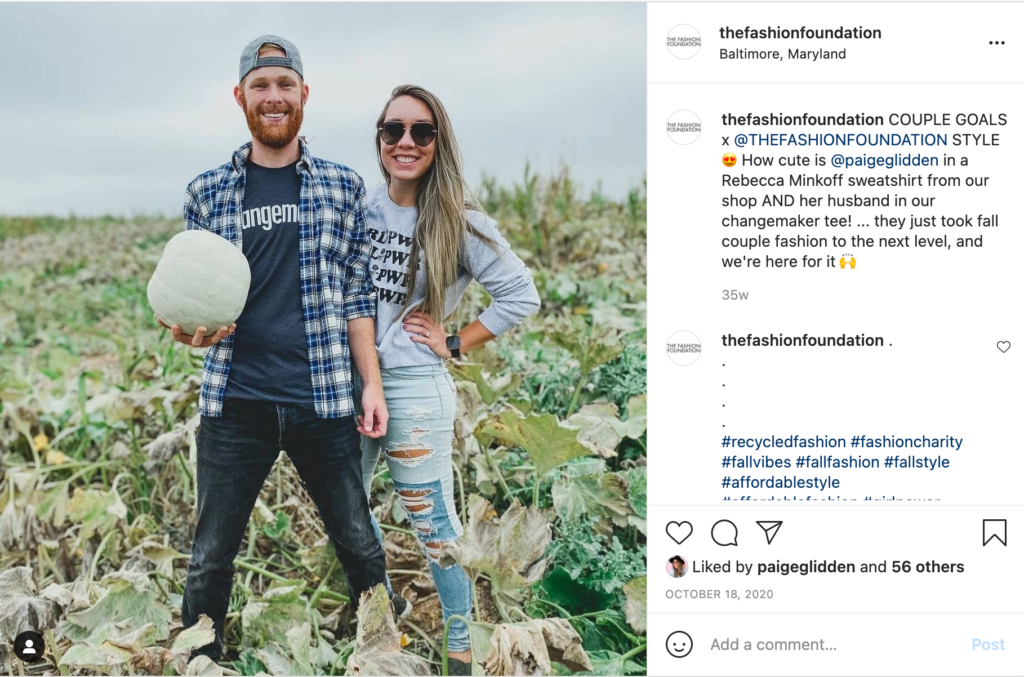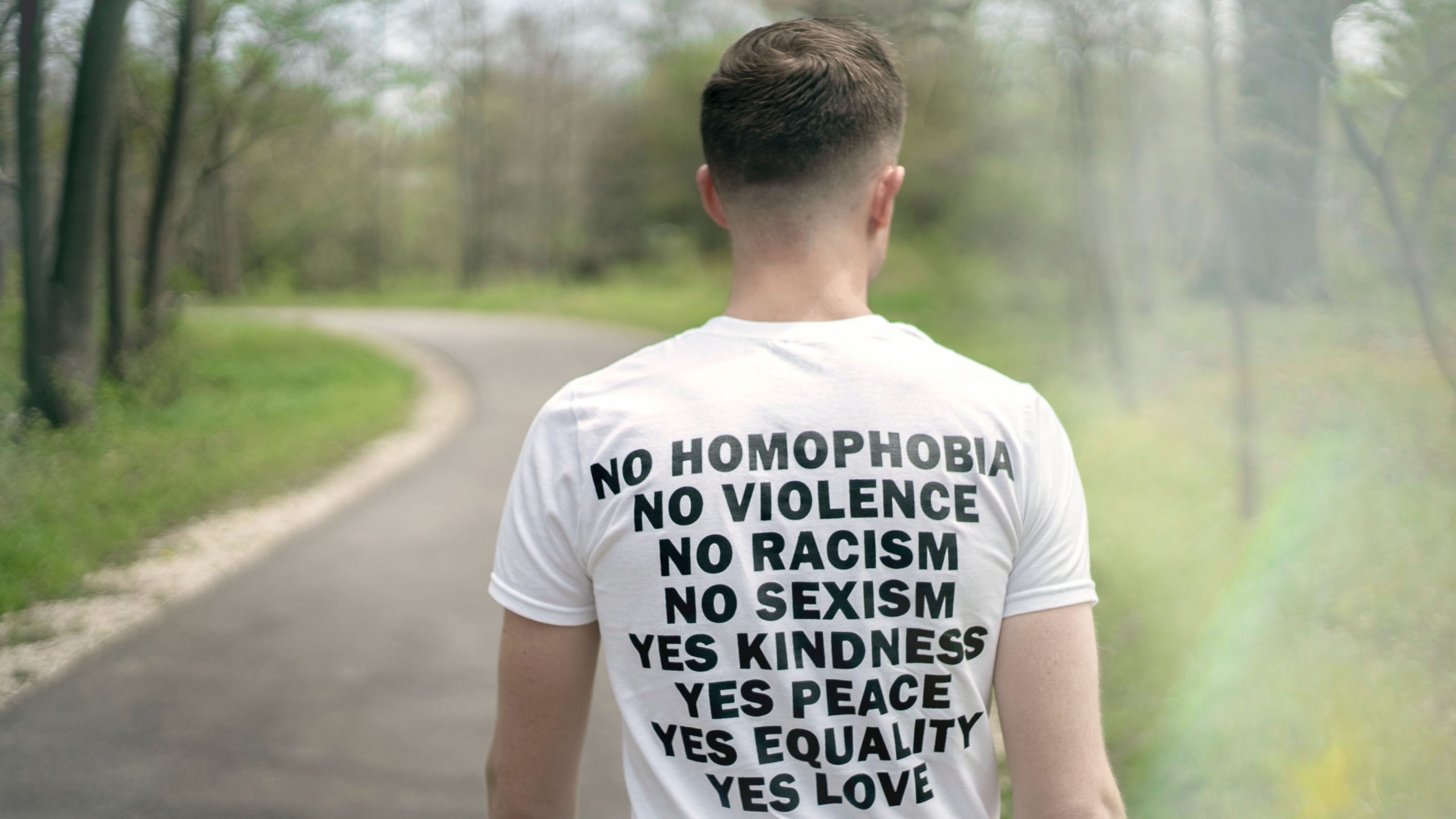It’s been more than a year since George Floyd’s death ignited a powerful wave of activism that carried into the corporate world: people decided they were tired of big businesses not caring about social causes. Americans called on CEOs and brands to not only speak up about injustice, but to DO something about it.
That’s where corporate social impact/responsibility (aka CSR) comes into play. Today, more than ever, potential customers care about the cause behind your business. What do you stand for? How are you using your platform for good? Are you giving back to your community? Do you speak up on topics that matter to you?
If you haven’t yet, incorporate CSR into your business model in some way, shape, or form! But if you need some inspiration — or explanation — about how other companies are doing this well, we’re highlighting four of our favorites.
Here’s how four companies are utilizing different strategies to incorporate corporate social impact in unique and authentic ways, and showing their consumers what they care about.
Aerie’s Corporate Social Impact Strategy: Awareness campaigns
Along with selling cute and comfy apparel, American Eagle’s brand, Aerie, supports individuals and families struggling with eating disorders through their partnership with the National Eating Disorder Association (NEDA).
Body positivity is perfectly on brand for Aerie — when they launched in 2014, they were one of the first major brands to feature models of all shapes, sizes, and abilities, and most notably, no photoshop or retouching. Their #AerieREAL campaign encourages women to embrace and love their bodies. In a world where 20 million women suffer from an eating disorder in their lifetime, Aerie has a unique and influential ability to make a difference on how young women view themselves.
Aerie has already donated $1.5 million through their NEDA partnership, and continues to come up with creative ways to build awareness and support the organization. In their most recent campaign, Aerie launched T-shirts with the (wise) words “I am REAL” on them — in which 100% of the purchase price is donated to NEDA.
The Fashion Foundation’s Strategy: Community outreach and local impact
For The Fashion Foundation, a corporate social responsibility strategy isn’t just a part of their business: it’s their entire business model. TFF sells donated designer clothes and uses profits to support students in need. Millions of students lack the supplies they need to start their school day, and The Fashion Foundation works to solve the problem — with creativity and sustainability in mind.
How does it work? Designer brands (like Rebecca Minkoff and Steve Madden!) donate extra or unwanted merchandise to The Fashion Foundation, and the organization resells the items at waaay reduced prices. (We got this GRL PWR sweatshirt for $20 instead of $90.)
With funds from sales, donations, events, and fundraisers, The Fashion Foundation provides schools with supplies, stocks libraries with books, revamps playgrounds, and more! Because the founder — and the fashion industry — is based in NYC, The Fashion Foundation focuses its efforts on local schools and makes donations in person.
Getting to see the smiles of kids getting backpacks full of pencils, notebooks, and other school supplies? Absolutely worth it every time.

Immigrant Food’s Strategy: Nonprofit partnerships
Immigrant Food is a DC-based restaurant that celebrates the people behind the food we know and love. Not only does their menu mirror America’s diversity of culture, but they take real, tangible action to support today’s immigrants. They call it: gastroadvocacy. (Bet you’ve never heard that one before!)
The past four years of the Trump Administration have shown us how divisive and contentious the subject of immigration can be. But food is the ultimate connector. Through our favorite dishes, Immigrant Food reminds us of the color that immigrants bring to our society — and our food.
Partnership is the name of the game: Immigrant Food builds intentional, meaningful partnerships with NGOs and asks them “how can we make a real impact on your work?” Immigrant Food supports their partners by raising awareness, building donors and volunteers, and opening the restaurant as an event space are just a few of the ways Immigrant Food supports their partners.
Parachute Home’s Strategy: Donating a portion of proceeds
When you buy bedding from Parachute Home, you don’t just get great sleep but give great sleep.
Parachute Home is an online-only bedding company that commits to making change by partnering with Nothing But Nets, an organization that raises awareness and funds for malaria prevention, specifically by sending insecticide-treated bed nets to vulnerable families around the world.
A child dies every two minutes from malaria, but bed nets have the power to reduce the rates of malaria by 90%. It only costs about $10 to buy and send two life-saving bed nets, so for every Venice Bedding Set sold, Parachute Home donates a bed net— which means they’ve donated 50,000 nets so far!
There are so many strategies to incorporate corporate social impact into your business: whether you can donate your time, your proceeds, or your skills, there’s no action too small.
Pin this for later 📌


Be the first to comment